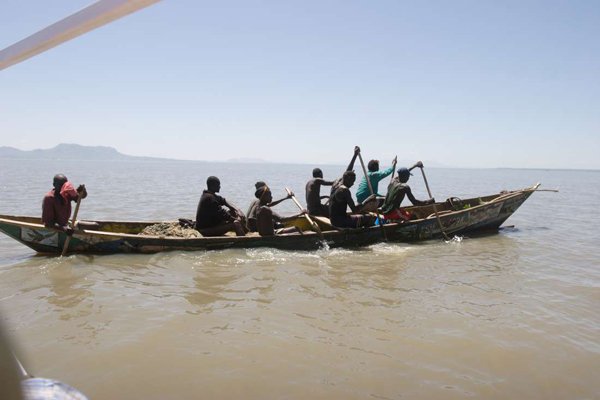President Uhuru Kenyatta has directed the ministries of Defence and Agriculture to suspend the fishing licenses of international trawlers, arguing that they are taking advantage of Kenyan waters.
He also directed the two ministries to stop all illegal fishing vessels until they comply with Kenya’s requirement for local input like cleaning and packaging of the fish.
“Today, foreign trawlers enter our waters and return to their countries filled with our fish. This must end until they comply with our requirement for local input,” the President’s speech read in part during the celebrations to mark the 53th Madaraka Day celebrations.
“These boats must land their catches in Kenya. The work of cleaning and packing fish for export must be done in Kenya by Kenyans.”
The move is aimed at promoting the blue economy in the country and creating jobs and wealth for Kenyans.
“This means that young people from Migingo to Mbita, from Kiunga to Vanga, and from Faza to Chale will find jobs and reliable incomes as fishermen, as fishmongers, as processors, as wholesalers and retailers,” President Kenyatta said.
He noted that Kenya has over 400 kilometres of a rich coastline and a share of the second-largest freshwater lake in the world.
“Our coastal and marine ecosystems, if properly exploited, would create tens of thousands of jobs for our people. Instead, we have allowed others to take our resources, build their economies and create jobs for their people at our expense,” he added.
He said the government’s aim is to significantly expand the fishing sector with projections of processing 18,000 metric tonnes of fish annually from the 2,500 tonnes that are currently processed. This has the potential to grow the blue economy seven-fold.
“We will also be able to expand our shipping industry in order to maximise on our marine opportunities,” he added.
At the same time, the president said the government will support small and medium-sized businesses so that they can become even more productive, profitable and able to hire other young people.
“My administration will complement the financing by commercial banks by increasing and consolidating all SMEs financing currently provided under the umbrella of the Kenya Industrial Estates,” he said.
“Here in Kenya, the bulk of employment comes from SMEs, which are an important contributor to the gross domestic product.
He added the plan is to create an additional 1,000 SMEs focused on manufacturing which will have access to affordable capital, skills and markets.








